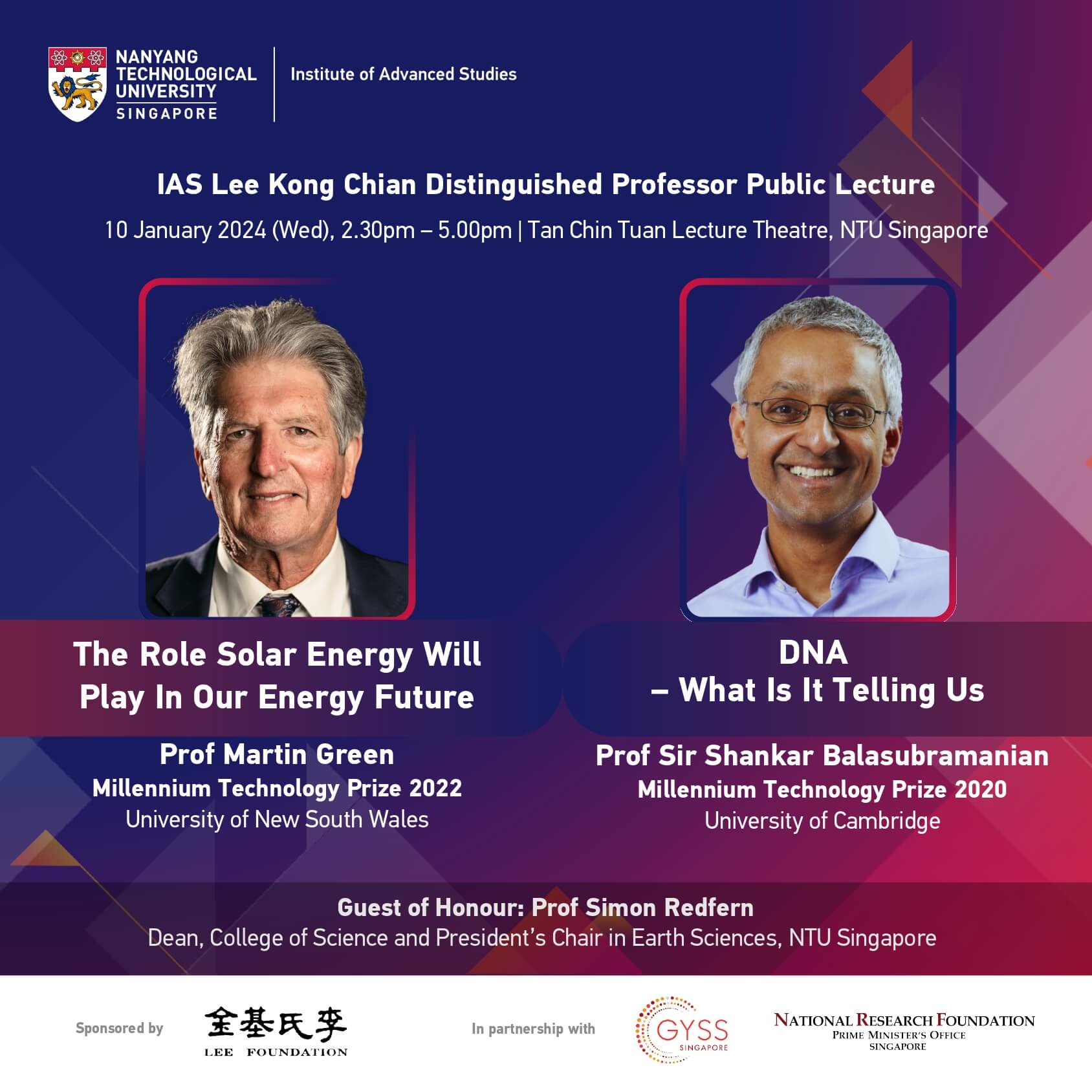IAS Lee Kong Chian Distinguished Professor Public Lecture 10 Jan 2024

"The Role Solar Energy will play in our Energy Future" by Prof Martin Green
Over the last decade, the cost of converting solar energy into electricity using solar cells has dropped very dramatically with such solar photovoltaics providing “now the cheapest source of electricity in most countries” and “now offering some of the lowest cost electricity ever seen”, according to the International Energy Agency. However, improvements are in the pipeline that some commentators believe may lead to an era of “insanely cheap” solar power, within the coming decade.
About the speaker: Prof Martin Green is Scientia Professor at the University of New South Wales and Director of the Australian Centre for Advanced Photovoltaics. His research spans multiple areas of renewable energy engineering, including novel semiconductor devices and photovoltaic solar energy conversion.
He is the 2022 recipient of the Millennium Technology Prize for his contribution to the development of the Passivated Emitter and Rear Cell (PERC) that has transformed the production of solar energy. Since its innovation in 1983, the PERC has helped increase the conversion efficiency of standard solar cells, reduce the cost of using solar panels, and provide reliable power supply for remote communities.
"DNA - What is it Telling Us" by Prof Sir Shankar Balasubramanian
DNA is a linear molecule made up of four building blocks, often abbreviated to the letters G, C, T and A. The sequence of these four letters constitutes a code that comprises 3.2 billion letters in a copy of the human genome. The International Human Genome Project used an approach developed by Fred Sanger to generate the first human genome reference in a global collaboration that spanned a decade. Over 20 years ago, during the course of some basic scientific experiments, a collaboration with David Klenerman and our co-workers, unexpectedly led us to conceive and then pursue a different way of sequencing DNA. The initial experiments ultimately led to a rapid, low-cost sequencing approach, which was developed and commercialised through a company we co-founded, called Solexa. Today the technique is able to sequence human, and other, genomes at a cost and speed that shows over a million-fold improvement compared to when we began the project in 1997. I will also discuss the impact of the technology on life sciences, medicine and society along with a vision of what the future holds.
About the speaker: Prof Sir Shankar Balasubramanian is the Herchel Smith Professor of Medicinal Chemistry at the University of Cambridge renowned for his contributions to the field of nucleic acids. He is the Senior Group Leader at the Cancer Research UK Cambridge Institute.
In 2020, he received the Millennium Technology Prize alongside Sir David Klenerman for their innovation of Next Generation DNA Sequencing (NGS), breakthrough technology that enables fast, accurate, low-cost and large-scale genome sequencing. NGS is now widely adopted in healthcare and diagnostics, and provides an effective way to study and identify new coronavirus strains and other pathogens.


